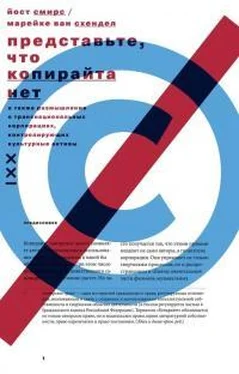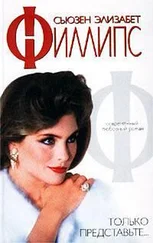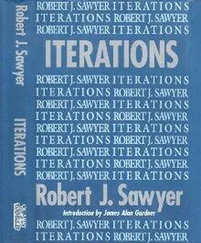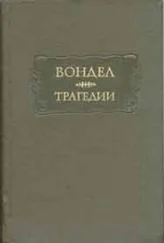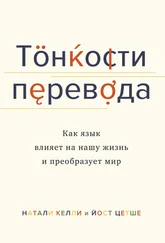Йост Смирс - Представьте, что копирайта нет
Здесь есть возможность читать онлайн «Йост Смирс - Представьте, что копирайта нет» весь текст электронной книги совершенно бесплатно (целиком полную версию без сокращений). В некоторых случаях можно слушать аудио, скачать через торрент в формате fb2 и присутствует краткое содержание. Жанр: Публицистика, на русском языке. Описание произведения, (предисловие) а так же отзывы посетителей доступны на портале библиотеки ЛибКат.
- Название:Представьте, что копирайта нет
- Автор:
- Жанр:
- Год:неизвестен
- ISBN:нет данных
- Рейтинг книги:4 / 5. Голосов: 1
-
Избранное:Добавить в избранное
- Отзывы:
-
Ваша оценка:
- 80
- 1
- 2
- 3
- 4
- 5
Представьте, что копирайта нет: краткое содержание, описание и аннотация
Предлагаем к чтению аннотацию, описание, краткое содержание или предисловие (зависит от того, что написал сам автор книги «Представьте, что копирайта нет»). Если вы не нашли необходимую информацию о книге — напишите в комментариях, мы постараемся отыскать её.
Представьте, что копирайта нет — читать онлайн бесплатно полную книгу (весь текст) целиком
Ниже представлен текст книги, разбитый по страницам. Система сохранения места последней прочитанной страницы, позволяет с удобством читать онлайн бесплатно книгу «Представьте, что копирайта нет», без необходимости каждый раз заново искать на чём Вы остановились. Поставьте закладку, и сможете в любой момент перейти на страницу, на которой закончили чтение.
Интервал:
Закладка:
Boyle J. Shamans, Software, and Spleens. Law and the Construction of the Information Society. — Cambridge: MA; London: Harvard University Press, 1996.
Brown M. F. Who Owns Native Culture? — Cambridge, Mass.: Harvard University Press, 2003.
Convention on the Protection and Promotion of the Diversity of Cultural Expressions. — Paris: Unesco, 2005.
Coombe R. J. The Cultural Life of Intellectual Properties. Authorship, Appropriation, and the Law. — Durham; London: Duke University Press, 1998.
Correa С. M. Intellectual Property Rights, the WTO and Developing Countries. The TRIPS Agreement and Policy Options. — London; Penang: Zed Books; Third World Network, 2000.
Correa С. M. Do small and medium-sized enterprises benefit from patent protection? — In Pietrobelli, 2004. — P. 220-239.
Cowen T. In Praise of Commercial Culture. — Cambridge; London: Harvard University Press, 1998.
Cowen T. Creative Destruction. How Globalization is Changing the World’s Cultures. — Princeton; Oxford: Princeton University Press, 2002.
Cowen T. Good & Plenty. The Creative Successes of American Arts Funding. — Princeton; Oxford: Princeton University Press, 2006.
Croteau D., Hoynes W. The Business of Media. Corporate Media and the Public Interest. — Thousand Oaks; London; New Delhi: Pine Forge Press, 2006.
Deere C. The Implementation Game. The TRIPS Agreement and the Global
Politics of Intellectual Property Reform in Developing Countries. — Oxford: Oxford University Press, 2009.
Doyle G. Media Ownership. — London: Sage, 2002 (a).
Doyle G. Understanding Media Economics. — London: Sage, 2002 (b).
Drahos R, Braithwaite J. Information Feudalism. Who Owns the Knowledge Economy? — London: Earthscan, 2002.
Drahos R, Mayne R. Global Intellectual Property Rights. Knowledge, Access and Development. — Basingstoke: Hampshire; New York: Palgrave Macmillan and Oxfam, 2002 (a).
Drahos P. An Alternative Framework for the Global Regulation of Intellectual Property Rights. — Camberra: Centre for Governance of Knowledge and Development, 2005.
Dreier T, Hugenholtz R B. Concise European Copyright Law. — Alphen van den Rijn: Kluwer International Law, 2006.
Drucker P. Innovation and Entrepreneurship. — New York: Harper Business, 1993.
Fisher W. W. Promises to Keep. Technology, Law, and the Future of Entertainment. — Stanford: Stanford University Press, 2004.
Florida R. The Rise of the Creative Class. And How It’s Transforming Work, Leisure and Everyday Life. — London: Basic Books, 2004.
Florida R. Cities and the Creative Class. — New York; London: Routledge, 2005.
Florida R. The Flight of the Creative Class. The New Global Competition for Talent. — New York: HarperBusiness, 2005 (a).
Frey B. S., Pommerehne W. W. Muses and Markets. Explorations in the Economics of the Arts. — Oxford: Basil Blackwell, 1989.
Frey B. S. Art & Economics. Analysis & Cultural Policy. — Berlin: Springer, 2000.
Frey B. S. Some considerations on fakes in art: an economic point of view. — In Mossetto, 2004. — P. 17-29.
Frith S. ( ed. ). Music and Copyright. — Edinburgh: Edinburgh University Press, 1993.
Frith S., Marshal L. (ed. ). Music and Copyright. — Second Edition. — Edinburgh: Edinburgh University Press, 2004.
Fukuyama F. Trust. The Social Virtues 8c the Creation of Prosperity. — New York: The Free Press, 1995.
Gagnon M.-A., Lexchin J. The Cost of Pushing Pills. A New Estimate of Pharmaceutical Expenditures in the United States. — In PloSMedicine, January, 2008, Vol. 5, Issue 1 (www.plosmedicine.org).
Geinser G., Wijnberg N. W. Effects of Reputational Sanctions on the Competitive Imitation of design Innovations. — In Organization Studies, 2001,22/4. —P.563-591.
Germann C. Content Industries and Cultural Diversity. The Case of Motion Pictures. — In Culturelink (Zagreb), Special Issue, 2002/2003. — P.97-140.
Gerven W. van, barouche R, Lever J. Cases, Materials and Texts on National, Supranational and International Tort Law. — Oxford: Hart Publishers, 2000.
Ginsburgh V.A., Throsby D. (eds.). Handbook of the Economics of Art and Culture. — Amsterdam: North-Holland, 2006.
Glenny M. McMaffia. Crime Without Frontiers. — London: The Bodley Head, 2008.
Goldstein P. International Copyright. Principles, Law and Practice. — Oxford: Oxford University Press, 2001.
Gowers A. Gowers Review of Intellectual Property. — London: HM Treasury, 2006.
Gräber, Beat C. a. o. (eds.). Digital Rights Management. The End of Collecting Societies? — Berne: Staempfli Publishers Ltd, 2005.
Grandstrand О. (ed.). Economics, Law and Intellectual Property. — Amsterdam: Kluwer Academic Publicers, 2003.
Grosheide W., BrinkhofJ. (eds.). Intellectual Property Law. Articles on Cultural Expressions and Indigenous Knowledge. — Antwerp: Intersentia, 2002.
Hagoort G. Cultural Entrepreneurship. — Utrecht: Eburon, 1993.
Harold C. OurSpace. Resisting the Corporate Control of Culture. — Minneapolis: University of Minnesota Press, 2007.
Hartley J. (ed.). Creative Industries. — Oxford: Blackwell, 2005.
Hauser. Sozialgeschichte der Kunst und Literatur. — München: C. H. Beck, 1972.
Heins M. «The Progress of Science and Useful Arts»: Why Copyright Today Threatens Intellectual Freedom. — New York: Brennan Center for Justice, 2003.
Heller A. The Power of Shame. A Rational Perspective. — London: Routledge & Kegan Paul, 1985.
Hemmungs Wirtén E. No Trespassing. Authorship, Intellectual Property Rights, and the Boundaries of Globalization. — Toronto: University of Toronto Press, 2004.
Hesmondhalgh D. The Cultural Industries. — London: Sage, 2002.
Hesmondhalgh D. (ed.). Media Production,Maidenhead. — Berkshire: Open University Press, 2006.
Hisrich R. D., Peters M. P. Entrepreneurship. — Boston: McGraw-Hill, 2002.
Hoskins C., McFadyen S., Finn A. Media Economics. Applying Economics to New and Traditional Media. — Thousand Oaks; London: Sage, 2004.
Howe J. Crowdsourcing. Why the Power of the Crowd Is Driving the Future of Business. — New York: Crown Business, 2008.
Keen A. The Cult of the Amateur. How Today’s Internet is Killing Our Culture. — New York: Doubleday, 2007.
Klein N. The Shock Doctrine. The Rise of Disaster Capitalism. — London; New York: The Penguin Press, 2007.
Kretschmer М. Intellectual Property in Music: A Historical Analysis of Rhetoric and Institutional Practices, special issue Cultural Industry (ed. P. Jefifcutt). — Studies in Cultures: Organizations and Societies, 1999, 6. — P. 197-223.
Kretschmer M, Kawohl F. The History and Philosophy of Copyright // Frith and Marschall. — 2004. — P. 21-53.
Lane G, Bachmann R. (eds.). Trust Within and Between Organizations. Conceptual Issues and Empirical Analysis. — Oxford: Oxford University Press, 2001.
LessigL. The Future of Ideas. The Fate of the Commons in a Connected World. — New York: Vintage, 2002.
Lessig L. Free Culture. How Big Media Uses Technology and the Law to Lock Down Culture and Control Creativity. — New York: The Penguin Press, 2004.
Lessig L. Remix. Making art and commerce thrive in the hybrid economy. — London: Bloomsbury, 2008.
Читать дальшеИнтервал:
Закладка:
Похожие книги на «Представьте, что копирайта нет»
Представляем Вашему вниманию похожие книги на «Представьте, что копирайта нет» списком для выбора. Мы отобрали схожую по названию и смыслу литературу в надежде предоставить читателям больше вариантов отыскать новые, интересные, ещё непрочитанные произведения.
Обсуждение, отзывы о книге «Представьте, что копирайта нет» и просто собственные мнения читателей. Оставьте ваши комментарии, напишите, что Вы думаете о произведении, его смысле или главных героях. Укажите что конкретно понравилось, а что нет, и почему Вы так считаете.
